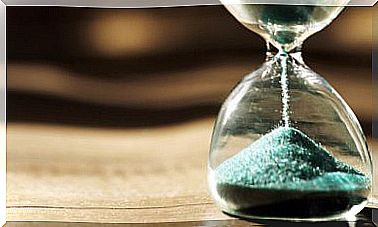The Smell Of Coffee Improves Cognitive Functions

The smell of coffee is a pleasure, and at the same time it stimulates us. Nothing is more comforting than taking in the smell of coffee in the morning. It is a pleasure for all the senses, our taste buds and our brains.
One study even suggests that this scent is able to motivate us and improve our cognitive processes. It can even help improve our mood!
Most people have experienced this at least once in their life. It is enough to open the pack, whether the coffee contained in it is whole or ground. The pleasant scent rises and penetrates you. We love that scent and that velvety depth that appeals to our imagination and memories.
Our wise brains give us these highly suggestive experiences. The smell of coffee travels from the brainstem directly to the limbic system, to the areas where emotions and memory take place.
The smell of coffee doesn’t necessarily improve our cognitive performance because it gives us superpowers. It simply affects our emotions and well-being with a placebo. This is without a doubt an idea worth exploring.

Our brains love coffee
It is often said that there is no place as full of ideas as the inside of a cup of coffee. Writers, students, philosophers and everyone else who drink it in the morning or evening will tell you the same thing.
Also, this drink was a favorite of several historical figures. Napoleon was one of them. He drank coffee before every battle, despite the effects on his stomach.
Caffeine is one of the alkaloids that our brains love the most. It is a natural stimulant for the nervous system. The effects take effect 15 minutes after you take it and can last up to six hours.
It is beautiful because of its molecular structure. Caffeine is able to block adenosine receptors, which are molecules that cause drowsiness or exhaustion.
Yet there is much more to say about coffee. It not only helps us stay awake and alert in the morning and even helps us do our job better. It can also give a pleasant feeling when we drink it.
We can thank dopamine for this sensation. This neurotransmitter provokes a state of activation, of well-being and motivation. However, it is also responsible for coffee addiction.
The smell of coffee
A study published this year in the Journal of Environmental Psychology revealed something interesting about coffee. The smell of coffee improves our cognitive skills.
In other words, it optimizes attention, analytical and problem-solving abilities, and our work or academic performance. All this may seem magical, but Dr. Adriana Madzharov explained that it is a curious case of the placebo effect.
Researchers were able to show that just by the smell of coffee in a room, 90% of the people who are there experience well-being. What we also already know is that our brains love coffee. Caffeine stimulates it and generates a feeling of pleasure. The smell of caffeine can activate all of this through the pathway it travels between the brainstem and the limbic system.
The placebo effect has great power over the human body. According to experts, this is especially the case when it is caused by the sense of smell.
This is a brain resource that is greatly underused, when in fact it is a direct connection to emotions and memory. It is an effective passage capable of inspiring, calming or activating us, improving our attention and creativity.

Experience life with your sense of smell
Famous writer and political activist Helen Keller lost her sight and hearing when she was 19 months old. For example, Helen developed an acute sense of smell at a young age. She has shaped her world by paying close attention to the smells around her.
The smell of coffee was also one of her favorites. In a quiet and dark world, her universe became infinitely and immensely rich through her sense of smell. This is something the marketing industry and organizations understand very well. Sometimes the smell of vanilla, cinnamon, coffee or chocolate can improve our well-being and productivity. This is very interesting!









